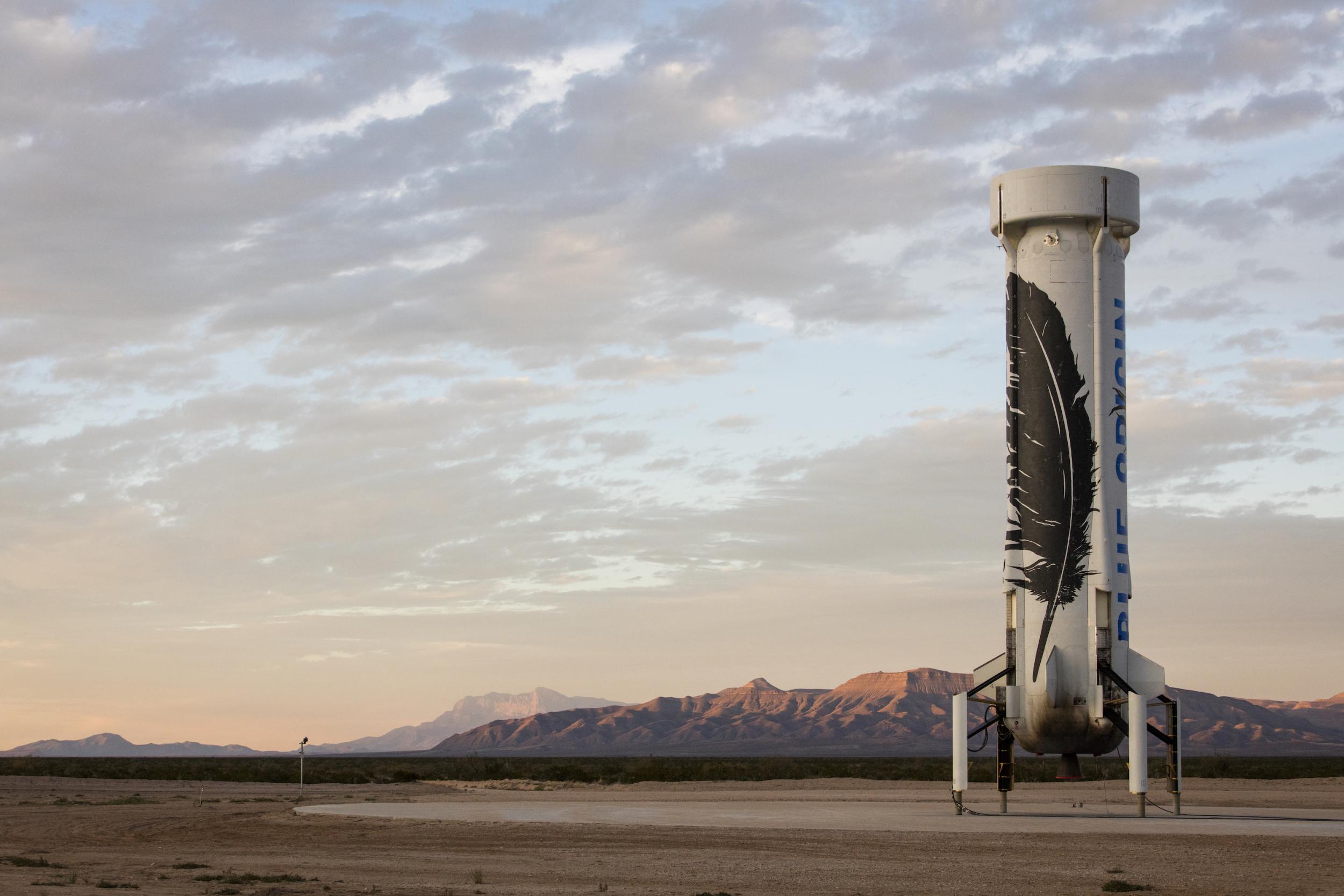New Shepard: Jeff Bezos' company successfully lands rocket booster back on Earth for the first time
The invention of a rocket booster that can gently land back on Earth without being damaged could reduce the cost of spaceflight

American entreprenur Jeff Bezos, the founder and CEO of Amazon, has just beaten SpaceX's Elon Musk to a major space milestone.
In an isolated area of west Texas on 23 November, the New Shepard spaceship took off and flew just outside of Earth's atmosphere, before the rocket booster and capsule separated.
Amazingly, using a complex system of rocket and air brakes, the large booster managed to gently land back on Earth, the right way up.
The capsule slowed its descent with parachutes, and landed safely as well.
Usually in spaceflight, once the rocket booster used to get the craft out of the atmosphere uses up all its fuel, it separates and returns to Earth, either burning up in the atmosphere if it's particularly high up, or violently crashing back down in the ocean or on land.
The quest to find a reusable rocket booster that can return to Earth safely has been long, but it looks like Bezos' space company, Blue Origin, has finally cracked it.
Monday's flight was the New Shepard's second test run - a previous flight, in April, suffered a hydraulic failure and was lost on the way down.
But this time, it worked properly. As Blue Origin said in a statement, large brakes, steering fins and high-throttle engines slowed the booster down on its journey back to Earth, allowing it to finish the last 100 feet (30m) of its flight travelling at only 4.4mph, touching down on a small landing pad unharmed after being shot 62 miles into the sky.
This invention could be revolutionary because it could seriously decrease the cost of spaceflight - creating an entire new rocket booster for only a single use adds great expense to every journey to space.
If you could use the same booster for multiple flights, you could slash the costs of flights hugely.
The New Shepard was unmanned, but Bezos hopes to use the craft for space tourism soon - up to six customers travelling in the capsule will be able to experience weightlessness for up to four minutes, and will get an unparalleled view of Earth through the capsule's windows, which are around three times the size of regular passenger plane windows.
As well as recreational spaceflights, Blue Origin hopes to use the craft to deliver payloads to space - offering companies and scientists the chance to conduct experiments and tests in microgravity at the fraction of the current cost.
One day, it's also hoped that a much larger reusable rocket that can land gently could be used to deliver satellites into orbit.
Elon Musk's space travel and transport company SpaceX has been working on a reusable booster since 2011, but Bezos got there first.
Graciously, Musk congratulated Blue Origin for their historic achievement, writing on Twitter: "Congrats to Jeff Bezos and the BO team for achieving VTOL [that's vertical take-off and landing to you and me] on their booster."
However, he was quick to point out that Bezos didn't achieve orbit - the New Shepard flight was only suborbital, meaning it essentially went very high up before coming back to Earth.
Due to the speed and height involved with actually orbiting the Earth, vertically landing after orbit is much more difficult, and hasn't yet been achieved by either Blue Origin or SpaceX.
Still, the New Shepard (named after Alan Shepard, the first American in space) has reached a big milestone, and could be bringing cheaper space tourism one step closer.
Join our commenting forum
Join thought-provoking conversations, follow other Independent readers and see their replies
Comments
Bookmark popover
Removed from bookmarks